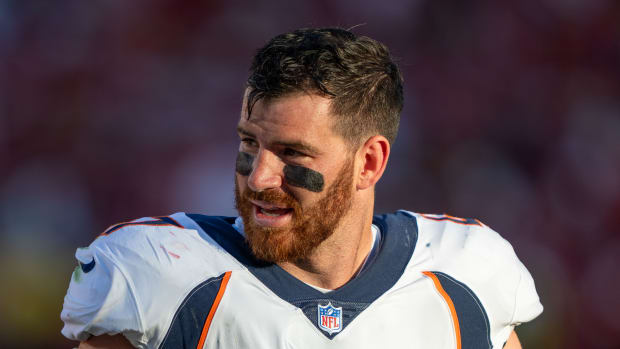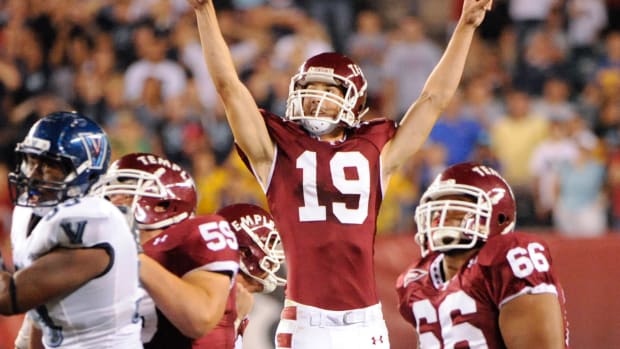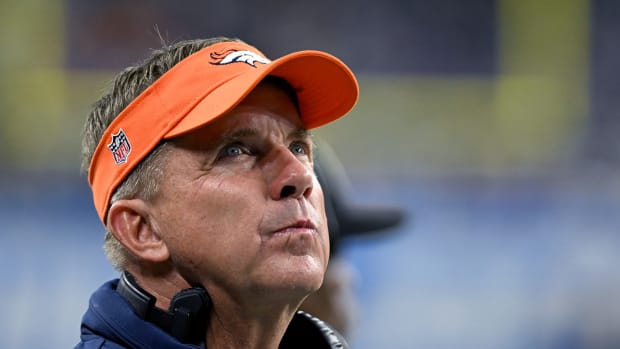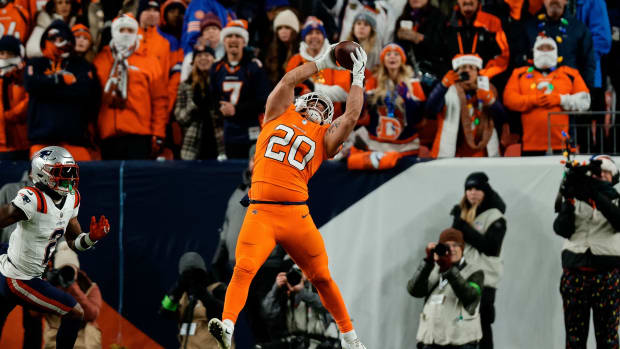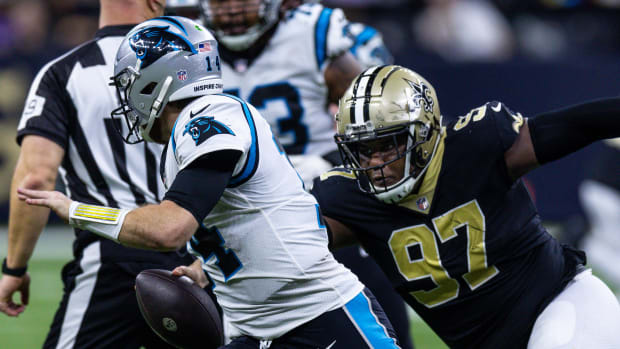5 Ways Broncos Could be Impacted by College Football Cancellations
The COVID-19 pandemic has seen various sports leagues react in different ways. The NFL, of course, is going forward with its regular season and, so far, has avoided major outbreaks during training camps.
But with college football, its approach has been different. Two of the Power 5 conferences — the Big 10 and the PAC 12 — will not play football in the fall, though there's a possibility of them playing in the spring. Meanwhile, the Big 12, ACC and SEC plan to play in the fall.
And that's just the major college teams. Many of the smaller schools have either postponed their football seasons or have seen their conferences postpone them.
It begs the question for Denver Broncos fans: How will these unprecedented changes to college football impact the Broncos' approach to the 2021 NFL Draft?
Here are a few things to consider about how the Broncos' future draft strategies could be impacted.
1. Fewer Opportunities to Scout Prospects
Because two major conferences won't play in the fall, the pool of players the Broncos could scout on the field will be reduced. That's going to make draft strategies a little trickier.
Even if the NFL Draft is pushed back (and there's a fair chance it will be), how much time will the Broncos be willing to invest in scouting players who play in the spring? Will they be more likely to focus on those who play in the fall?
Other things to consider are whether or not the Senior Bowl will be played or whether the NFL will bother with the Scouting Combine because a lot of eligible players will not play until the spring.
The Broncos will have to weigh their decisions carefully because the chances to see players up close won't be there like they have in the past.
Just be thankful the Broncos won't likely have to scout quarterbacks.
2. Spring Players Less Likely to be Scouted
There's always the risk of injury when one plays football. A player who plays in the fall gets some time to recover before the draft, though, and might still get selected despite the injury.
However, players who play in the spring and get injured may simply be passed over. Thus, it wouldn't be surprising if more players opt not to play if they intend to enter the 2021 draft.
That, of course, further reduces the opportunities for the Broncos to scout players, which brings me to the next point.
3. Less Tape to Study
Those who love following college football and studying NFL prospects spend lots of time reviewing tape. In some cases, they start preparing draft rankings for players even when they still have plan to play college ball for another year or two.
But that means those player rankings can change. Players rise and fall with each year of college ball, and that's where the tape comes in — and some teams will prefer to have recent tape, rather than tape that's a year old.
That means any student-athlete who doesn't play this fall could leave the Broncos asking whether the player is really a top prospect or if he's a one-year wonder, which will require the scouting staff to think a lot more about what tape is available, to ensure the team focuses on the right prospects.
4. A Delayed Draft Could Mean Another Stunted Offseason
Per the collective bargaining agreement, the NFL Draft can be held as late as June 2. However, a later date needs to be negotiated between the NFL and NFLPA.
But it appears likely that the 2021 draft won't be held in April. And the farther the draft is pushed back, the less time teams will have to work with the players during the offseason.
So the Broncos will have to think about what next year's offseason program could like and how they're going to work with the players they select. It could very well mean that the offseason next year is similar to this year, in which the coaching staff didn't get to start working with players until training camp.
If that is the case, at least the Broncos now have an idea about how that could work. But it's a reminder that 2020 may not be the only year in which the offseason program looks a lot different than it has in the past.
5. Free Agency Will be Different
We know that a reduced salary cap base will impact team decisions about who they will sign in free agency, and the Broncos are no exception, even though they're expected to have a good chunk of available cap space next year.
The reduced cap means that certain players were probably going to find it harder to cash in on big contracts. And those that aren't likely to get those big contracts might have to wait even longer to sign with teams.
If the Broncos, for example, decide to focus on using what space they have to commit to their own players first (Justin Simmons is the most notable, though restricted free-agent tenders will be certainly used on Alexander Johnson and Phillip Lindsay), they could decide to sit out free agency after that and wait for the draft, whenever it's held.
And if more teams follow suit, that means some players might find it even harder to get big contracts. They may be waiting until as late as July, or even August, to sign with teams. And at that point, it's much harder for players to get favorable deals.
Follow Bob on Twitter @BobMorrisSports and @MileHighHuddle.
